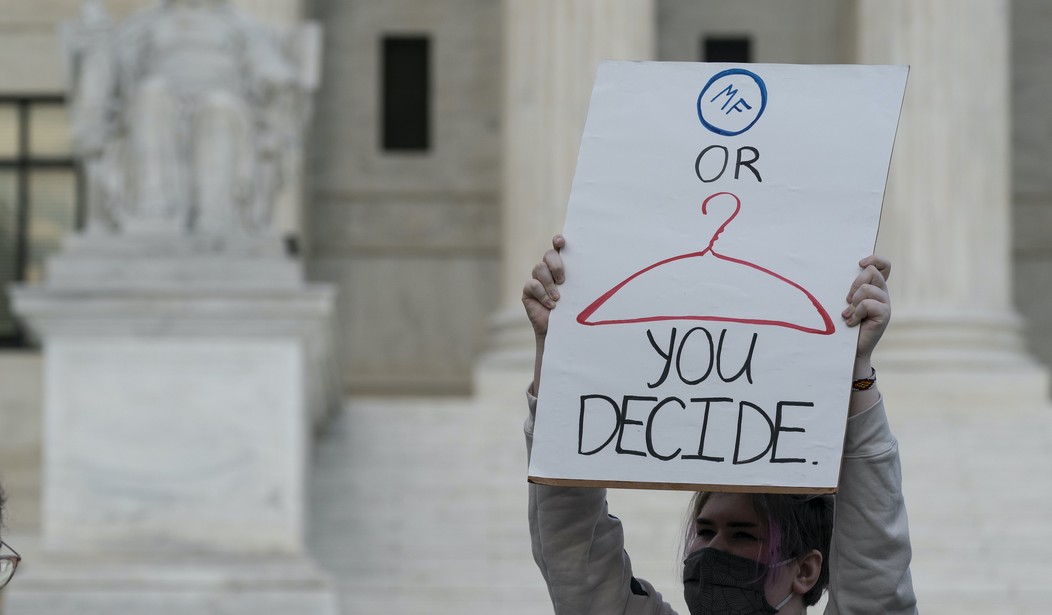Anti-abortion activists have won a big victory with the Supreme Court’s Dobbs decision, returning the power to regulate abortion to the states. But what about states where abortion is banned that want to pass legislation that would make it illegal for their residents to travel to another state where abortion is legal?
Should women wanting an abortion be prevented from traveling to another state for the procedure?
In his concurring opinion in Dobbs, associate justice Brett Kavanaugh said it would be unconstitutional to restrict travel for any reason.
One big reason is that the key vote in Dobbs was Justice Brett Kavanaugh, who ruled out travel bans in a concurring opinion. Kavanaugh wrote that such a ban would fail “based on the constitutional right to interstate travel”and described the question as “not especially difficult as a constitutional matter.” That view was echoed by Attorney General Merrick Garland in a post-Dobbs statement: “under bedrock constitutional principles, women who reside in states that have banned access to comprehensive reproductive care must remain free to seek that care in states where it is legal.”
The dean of Republican Senators, Iowa’s Chuck Grassley, agreed. “We cannot stop people from traveling anyplace they want to,” he told reporters Wednesday. “It’s a constitutional issue and a freedom.”
The issue is relevant and immediate after no Senate Republicans crossed the aisle to support a bill that would have protected the right of women to travel for an abortion.
The Freedom to Travel for Health Care Act of 2022, authored by a trio of Democratic female lawmakers — New York’s Kirsten Gillibrand, Nevada’s Catherine Cortez Masto and Patty Murray of Washington — made an argument rooted in the 14th Amendment’s equal protection clause that, among other things, essentially allows citizens freedom of travel to states while enjoying equal protection under the law.
The blocked bill would codify the ability of people to travel without repercussion from a state where abortion is restricted to another state where it is legal.
The bill would extend those same protections to people or groups who assist in abortion access across states as well as health care providers who offer abortion services to out-of-state patients if they are legally allowed to offer those same services to in-state residents.
How would a travel ban on abortion work? How would it be enforced? Will there be state troopers at the border checking cars for pregnant women demanding to know their destination? Perhaps it will be more Stasi-like in building a network of informants who tattle on women who were no longer pregnant after traveling out of state.
The idea of banning travel within the United States to anyone for any reason is unAmerican. But that doesn’t mean some Republicans aren’t going to try it.
Indeed, some Republican-controlled states are already considering legislation that would bar women from traveling across state lines to receive an abortion. In Missouri, for example, legislation is being considered that would allow private citizens to sue anyone who assists a woman in traveling out of state to receive an abortion. Missouri is one of at least 13 states that have ceased nearly all abortion services.
Democrats warned that other states may soon consider proposals like the Missouri bill that aim to penalize women and those who help them travel across state lines.
“Anyone who tells you this is not a threat is either not paying attention or they are just trying to mislead you,” said Murray, the top Democrat on the Senate health committee.
There are two ways to deal with this problem: either pass a nationwide ban on abortion or make it legal in all 50 states. Neither option is a possibility at this time and no one is willing to compromise.
The abortion battle will continue with no end in sight.










Join the conversation as a VIP Member